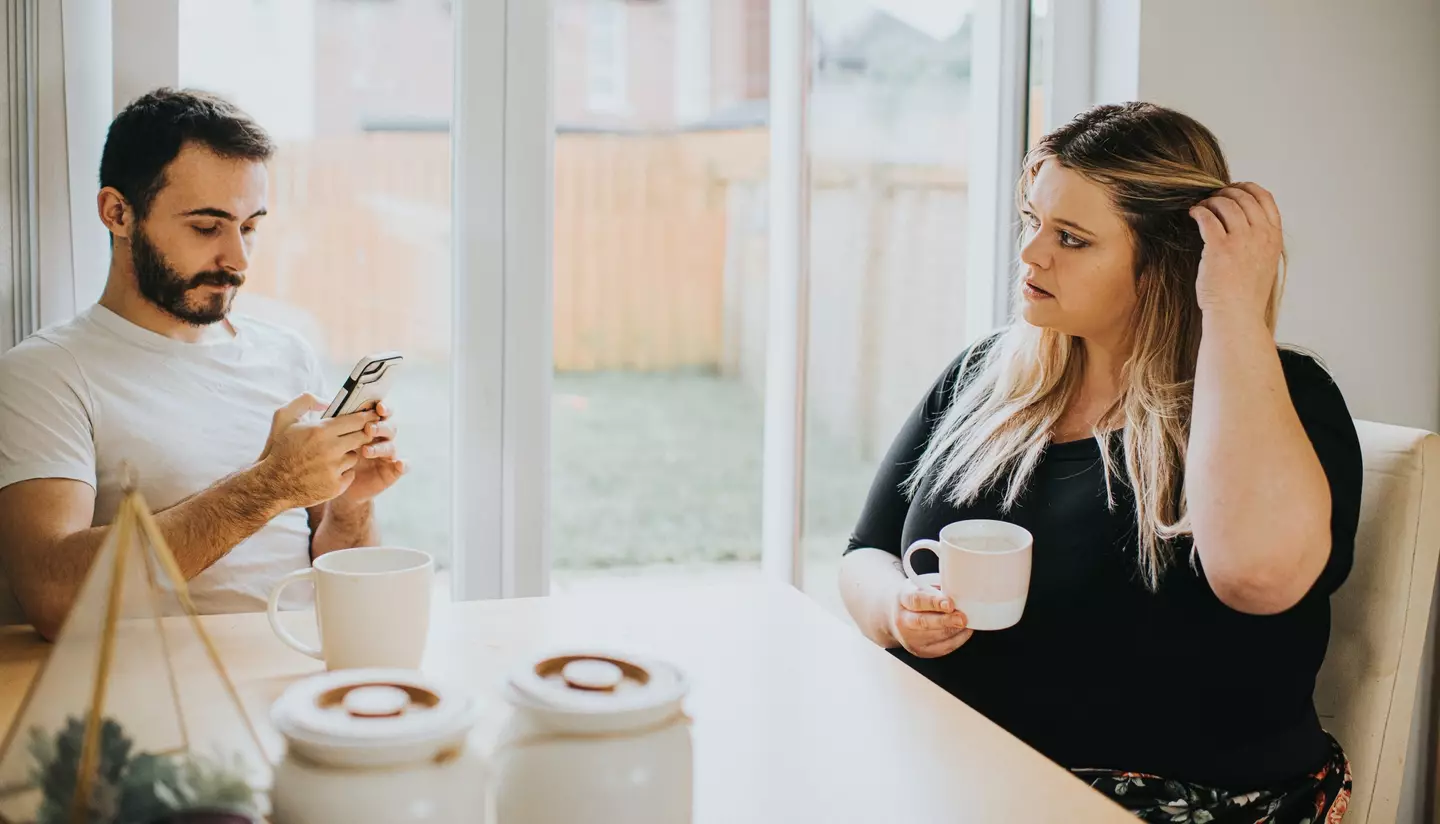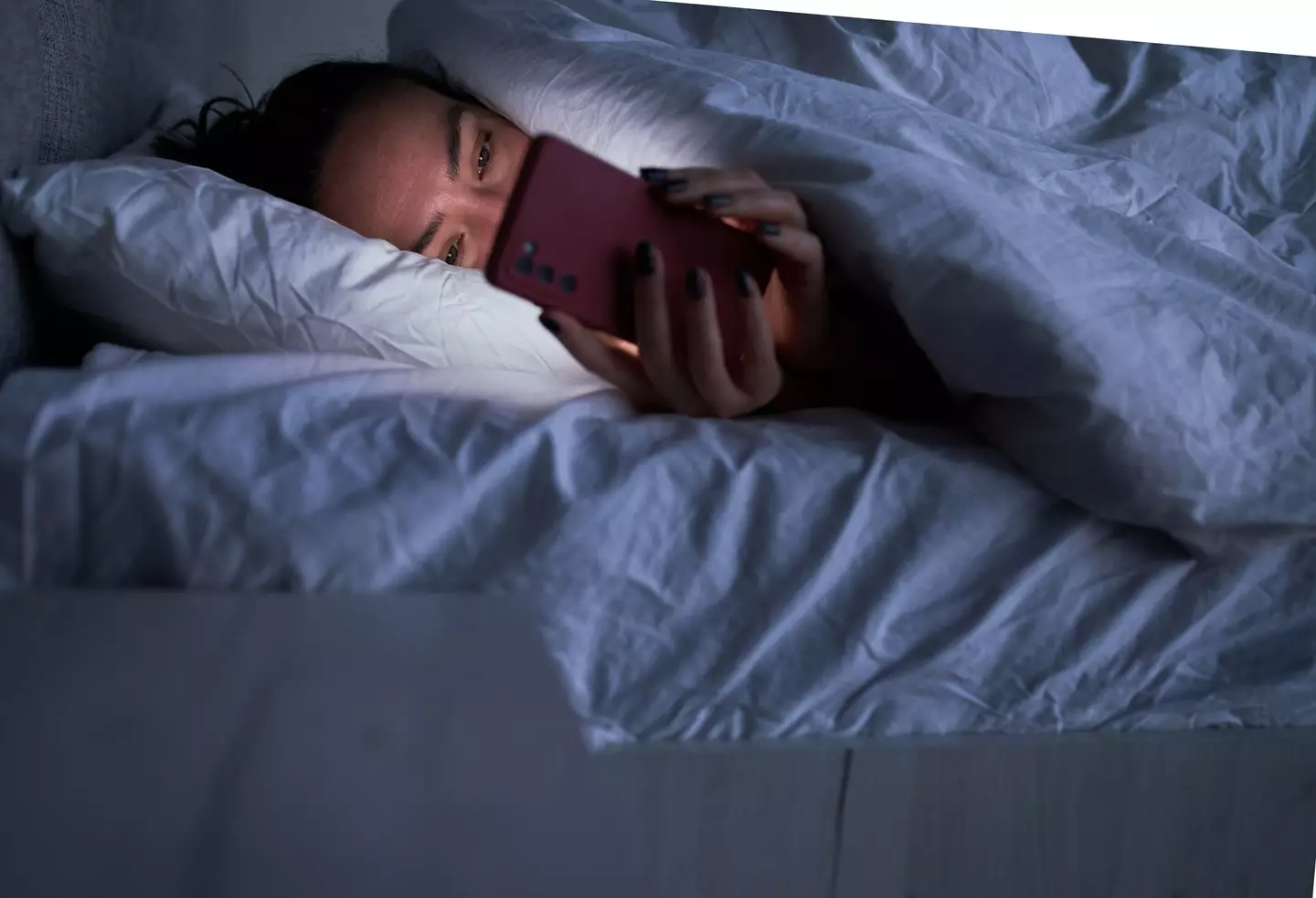
A relationship has a lot of factors that you need to consider when it comes to making it work long-term, but there's one common bedtime habit that could be sending yours to an early grave.
In the age of technology and social media, more studies are being carried out surrounding the problems cause by our phones.
And it turns out 'parallel scrolling' is the new thing you need to be aware of when you crawl into bed in the evening.

Advert
The bed is a special place, it's where you sleep and where you and your partner, you know... rot on the weekends, and absolutely nothing else.
But it has also recently become a hotspot for the new relationship habit taking the world by storm, which experts are urging couples to be wary of.
In fact, if you've ever ignored each other and instead decided to sit on your phones, then you're victims 'parallel scrolling'.
It's similar to 'phubbing', a combination of the words 'phone' and 'snubbing', which is when someone is ignoring you while using their phone.
But with parallel scrolling you're doing it to each other.
Advert
It's more common than you think, as a 2017 Baylor University study revealed that 70 percent of participants said their phones 'sometimes', 'often', 'very often' or 'all the time' interfered in their interactions with partners.

Tracy Ross is a couples and family therapist in New York City and has weighed in on the problem, saying that many couples think of phones as an unwelcome third party in their respective relationships.
“Many of the couples I work with complain that their partner is constantly on their phone, distracted, and that it’s hard to get their attention,” she explained to Huffington Post.
While acknowledging that people need to wind down at the end of the day, she highlights that it does a lot of damage to a relationship, with energy and focus directed away from your partner.
Advert
“Parallel scrolling ― or just generally being on your phone ― prevents the sharing of experiences, feelings and worries, creating more separateness, which is the opposite of connection,” Ross said.
She also says that it decreases the 'chances of intimacy and affection', as connection is key in a successful relationship.
So what can you do to combat it?

Make some casual rules about phone usage
Relationship coach Fabiola Wong suggests that you assign a bit of time in the day where you put your phone down and spend time with each other.
Advert
“Something that has helped my partner and I break our attachment to our phones is implementing a no-phone rule when eating dinner, while on dates and when we’re in the car, regardless of who’s driving,” she said.
It might also be worth scrapping your phone for one night a week or on weekends with your loved one.
Mention your bedtime habits together
If you do find yourself getting into bed and scrolling together, you might want to stop and point it out to your partner in a playful way, avoiding a confrontational tone.
Ross said: “Casually ask, ‘Do we want to keep scrolling?’” she said. “Maybe we can find something to do together? And maybe we can put the phones down for a while.”
Advert

Check if your partner is the problem
You might need to search your feelings and see if it has anything to do with your partner - maybe you might be doing it to avoid them.
The relationship coach says: “Ask yourself if you are using the phone to avoid your partner — and if so, what could that be about?
“Habits tend to stick, and unless we actively try to change them, they persevere,” she highlighted.
There is also the possibility that couples use their phones to avoid talking about deeper issues, so if that's the case, it's always better to discuss it.
Introduce 'parallel play'
Instead of using your phones alone, embrace scrolling together on one phone.
It's a good compromise and gets you each involved with each other's interests on a deeper level, which might include stupid memes you don't understand or makeup videos you enjoy watching.
The point is it connects you more as a couple, and gets you spending more time together.
Topics: Dating trends, Sex and Relationships, Social Media, Technology, Sleep